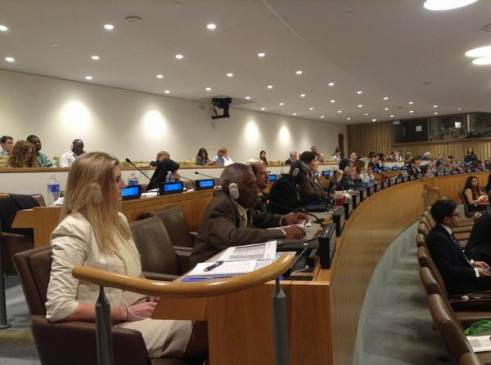By Bridget Sleap
The process towards a new convention on the rights of older people may be moving into a new phase.
From 30 July to 1 August, representatives of just over 100 governments met at the UN in New York to discuss older people’s rights and the possibility of a new international human rights instrument, a convention, to protect them.

The fifth session of the Open-ended Working Group on Ageing (OEWGA) ended with a strong call from civil society and governments that support a new convention for the discussions at the next session to focus on what the main elements of a new convention should be.
There was a strong sense among those who support a new convention that the OEWGA was not fulfilling its mandate in its entirety and had not dedicated enough time to looking at what should go into a convention.
The OEWGA is the only place within the UN system where governments and civil society come together to discuss the gaps in the international human rights framework in relation to older people’s rights and what the main elements of a new international instrument, a convention on the rights of older people, should be.
Strong HelpAge presence
There was a strong HelpAge network representation at this fifth session, with Affiliates and partners from nine countries attending.
Kenneth Hemley, an ADA activist from Jamaica spoke on the failure to implement MIPAA in his community, following on from handing almost 300,000 signatures to the ADA petition to the OEWGA Chair.
As well as making opening and closing statements, HelpAge also spoke in each of the three panel discussions.
The way ahead
In his concluding comments, the Chair pushed for a change in gears for the next sessions of the OEWGA. He proposed taking a twin-track approach, on one hand looking at how to strengthen the implementation of existing mechanisms, and on the other taking forward discussions around the main elements of a new instrument.
This would be a significant development and allow for a much more focused discussion on what the main elements of a new convention should be. However, there is no doubt that there is still much more work to be done to make sure older people’s voices are heard and to keep the momentum moving forward.
The number of governments participating each year has slowly been increasing, but 100 countries only represents 52% of all UN Member States.
And while there were statements in support of a convention from a number of African and Asian countries, alongside the support from Latin American countries and Slovenia, there are still Member States who argue that a convention is unnecessary.
